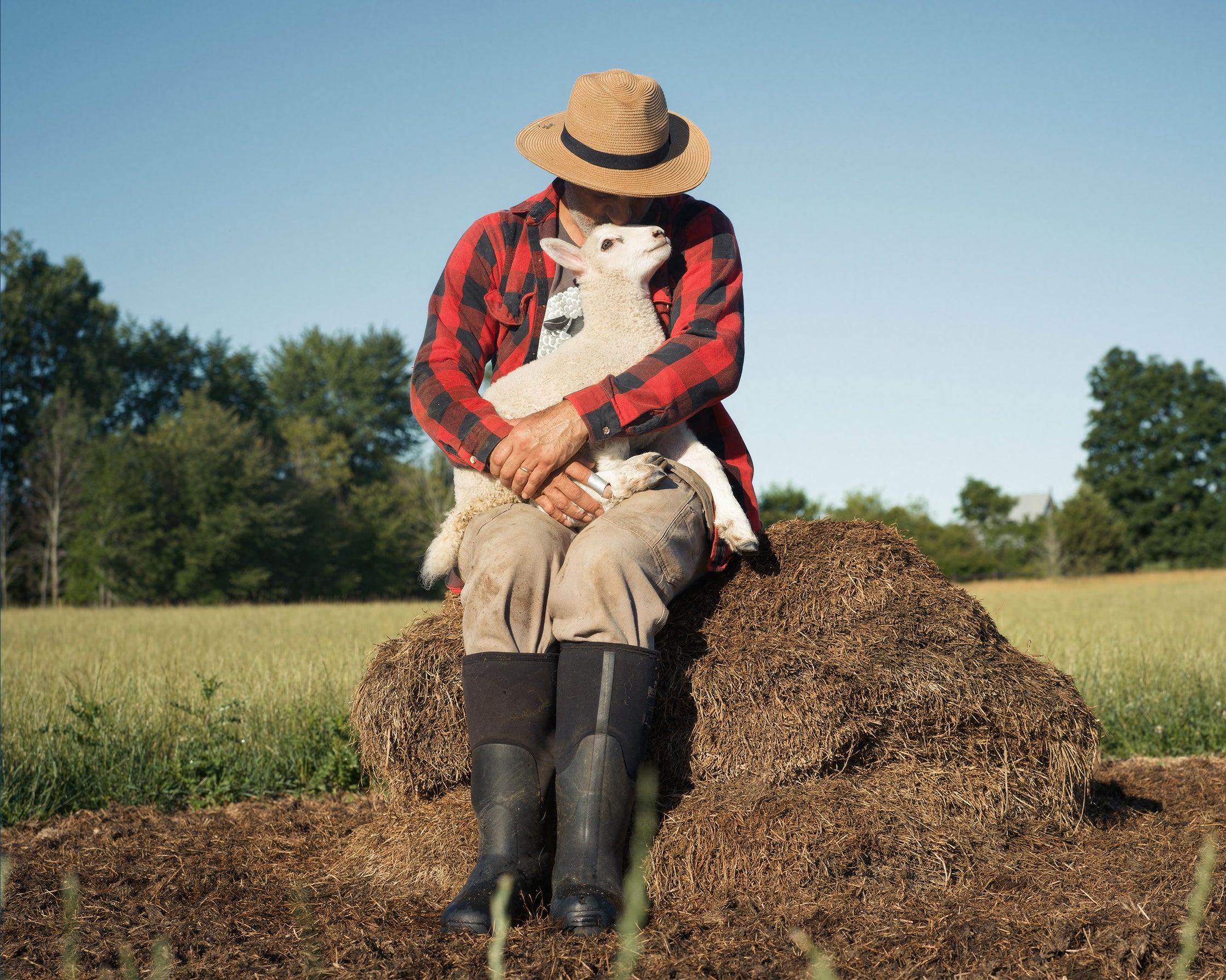Counting and Sheep
At home and abroad, Frederi Viens applies statistical approaches to improve agricultural ecosystems.

Spring 2025
By Lynn Gosnell
Photos by Kyle Monk
When we caught up with statistician Frederi Viens last June, he was making hay at his sheep farm near Lansing, Michigan. Within a week, Viens would be on a plane to Nigeria, where he would convene a symposium about sustainability in the Lake Chad Basin, where water accessibility is a significant challenge for local agrarian communities. For Viens, these distant pursuits are deeply complementary.

Viens’ academic field is probability, meaning that he’s an expert in prediction and uncertainty. “I think of it as a way to compute the odds of some event happening, whether in a future experiment or in the future of our planet,” he recently told Rice Engineering Magazine. In northeast Nigeria, Viens and Philip Ernst, a former Rice colleague now at Imperial College London, are leading a project to apply Bayesian statistical analyses to better understand the hydrology of the Lake Chad Basin — a vitally important water source to millions in the semiarid region. The research team interviews local constituents — including farmers, herdsmen and fishermen — to learn about their challenges firsthand and share them at symposia such as last summer’s meeting in Maiduguri, the capital city of northeast Nigeria’s Borno State. In the U.S., Viens lends his statistical expertise to agroecology projects, including calculating the economic benefits of improving soil health through sustainable farming practices.
Back on his Shetland sheep farm, Viens uses regenerative farming practices to convert the former corn and soy fields into healthy pastures and hay fields — the better to raise healthy sheep.
Frederi Viens is professor of statistics in the School of Engineering and Computing at Rice.
